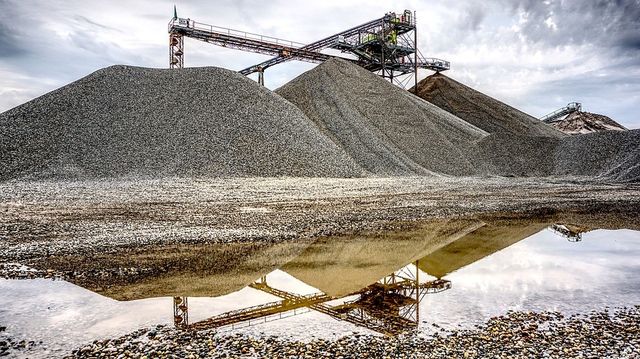
The number of mine workers in the coal space worried about the effects of automation has risen year on year
This blog post was originally published in The West Australian and is republished here with permission.
The number of mine workers in the coal space worried about the effects of automation has risen year on year, according to a survey by recruiter Mining People International.
Of 640 people surveyed in May, 258, or 40.31 per cent, were 'somewhat worried or concerned' about the impact of increasing automation throughout the mining industry, compared to 35.03 per cent of respondents last year, though Mining People International Managing Director Executive Search Steve Heather said these fears were overblown.
"We found it interesting that on the one hand the mining industry is already reporting technical skills shortages, whereas the broader population – and therefore possibly mining job seekers as well – were being influenced to fear losing their job due to automation and artificial intelligence," he said.
"Negativity towards the mining sector in recent years has caused a considerable reduction in people training for mining-related careers and, as a result, we will soon likely begin to experience some structural skill shortages again. This will mitigate some of the job losses that may come from automation."
"Yes, some jobs will disappear, but interesting new ones will be created as well."
This sentiment was perhaps shared by the 41.56 per cent of this years' respondents, who reported being excited and/or optimistic about automation, though this number was down from 47.06 per cent in 2017.
The number of people reporting no strong view either way remained largely unchanged at 18.13 per cent.
The most recent survey identified respondents in supervisory and managerial roles, revealing a significant divergence in attitudes between those in more senior positions and workers on the frontlines.
Of the 272 mining supervisors and managers who responded, 52.21 per cent were excited and/or optimistic about automation in mining, compared with 33.7 per cent in non- supervisory or managerial roles.
These results were reflected in the somewhat worried and/or concerned camp, which encompassed 33.09 per cent of those in more senior roles and 45.65 per cent in non-managerial or supervisory roles.
The higher levels of angst amongst those in frontline roles could be reflective of the mining industry's focus on automation of mobile equipment, according to the survey, though Mr Heather said technology such as driverless trucks was giving rise to new roles.
"A lot of the automation so far has been aimed at the operation of mobile equipment – trains and trucks – and, as a result, control centre officers are one of the new jobs being created," he said.
"Another new role is based around data. The mining industry gathers a lot of data, particularly in exploration and mineral processing. These areas have always been populated by a lot of technically trained people who understand data, but as these processes start to analyse much larger quantities of data in real time, there will be jobs for people specifically as data scientists and analysts working alongside the mineral processing technical people and the geoscientists."
"Organisations like Newcrest, Rio Tinto, BHP and Fortescue Metals Group are at the forefront of this ‘big data’ technology and already there is an increased demand for data analysts to help maximise productivity gains achieved from the use of the technology."
For the time being, Mr Heather said the mining sector was effectively upskilling its workforce, though workers would need to be proactive to stay abreast of an increasing rate of change.

"As we know, technological improvements tend to occur exponentially, and I imagine the uptake of technology in mining will likely grow more significantly than it has," he said.
"That said, not every operation and orebody lends itself to the adoption of significant technology uptake. This will help ensure there is not a total avalanche of job losses or inadequately trained people for thousands of new positions that will be required."
"The key requirement is for people to remain flexible and be prepared to be re-trained and upskilled. If jobseekers maintain that approach, coupled with the wave of new battery metals projects coming to Australia, and Western Australia in particular, and the adoption of new technologies, we truly believe the mining industry could create more excitement and optimism, than fear."